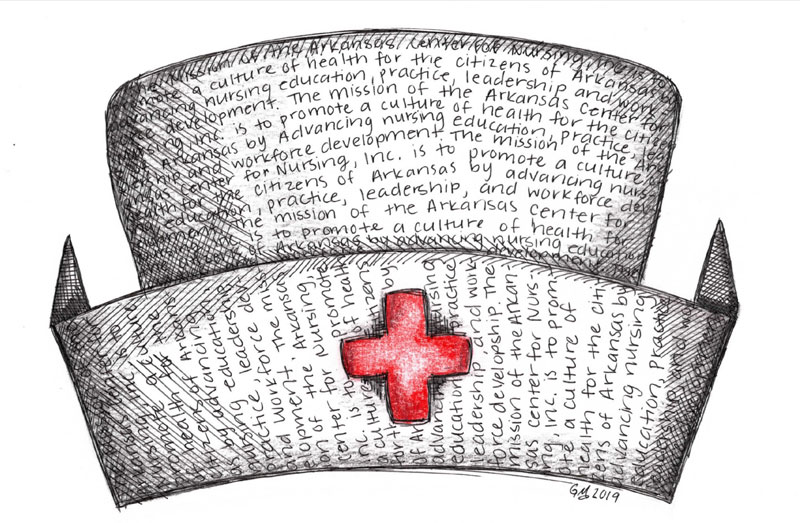2020: The Year of the Nurse

“Nursing is an art: and if it is to be made an art, it requires an exclusive devotion as hard a preparation as any painter’s or sculptor’s work; for what is the having to do with dead canvas or dead marble, compared with having to do with the living body, the temple of God’s spirit? It is one of the Fine Arts: I had almost said, the finest of Fine Arts.”
Florence Nightingale
During the Crimean War, in the 1850’s, the death rate of infection surpassed the death rate of actual battle. This statistic was simply unacceptable to a nurse by the name of Florence Nightingale. Known as the “Lady with the Lamp,” Florence recognized the need for infection control and sanitation. Her cutting edge techniques would radically change the healthcare practices of the age. Florence is credited in saying that it would “take 150 years for the world to see the kind of nursing that (she) envisioned.”

Fast forward those 150 years and the world is facing a global pandemic that rivals any of the infectious disease outbreaks of the past. Nurses are tasked with providing education and guidance on some of the same sanitation measures that Florence crafted during her time at the bedside. I believe that she would be proud of our low surgical infection rates and the breadth of antibiotic and antiviral agents now used to treat infection. But perhaps the kind of nursing that Florence spoke of in the 1850’s wasn’t simply characterized by low infection rates and treatment of disease. No, I believe that Florence realized the need for nurses to think autonomously, be creative, and lead the charge to fight the challenge of the day.

I believe that Florence would be proud of the advancements in nursing education and training. I believe she would celebrate the roles of advanced practice nursing. But I think the role that she most desperately wanted to see fulfilled in her nursing colleagues, was the role of nurse innovator, a hero in healthcare.
The Johnson and Johnson Company, continuing in their commitment to the advancement of nursing, recently published a video highlighting the innovative roles that nurses have played over the past 150 years. While I encourage everyone to visit their website and view the entire video, I want to share with you a portion of their script:
“During the Crimean War, more soldiers died from infection than in battle; until a NURSE introduced sanitary practices still in use today.
When the scourge of polio hit the world, it was standard practice to strap down and immobilize patients; until a NURSE discovered that movement and physical therapy had far better results.
In the 1950’s, jaundice was a leading cause of infant death; until a NURSE found that a few hours of sunlight could actually cure the condition.
At the dawn of the AIDS epidemic, no one knew how the disease spread, so patients were kept quarantined and alone; until NURSES defied convention and embraced them with compassion.
During the Ebola outbreak, the disease was thought by many to be too contagious to treat; until a STUDENT NURSE used what she had on hand, garbage bags and duct tape, to protect herself so that she could care for others.
Cerebral palsy robbed many patients of their ability to speak; until a NURSE gave them back their voices.
Nurses change lives. And that changes everything.”
Johnson & Johnson, 2019 (emphasis added)

Innovation is what nurses do, it’s who nurses are. So, in 2020, the Year of the Nurse, we will celebrate Florence Nightingale’s 200th birthday (May 12, 2020). We will celebrate the advancements in the science and the art of nursing. And for us at the Arkansas Center for Nursing, we will celebrate the nurse innovators, the “Healthcare Heroes,” in Arkansas. We will celebrate as they win battles over COVID-19, and we will celebrate as they continue to improve healthcare delivery both locally and around the world.

Please stay tuned. The Arkansas Center for Nursing will begin celebrating these nurses with frequent tales of “Healthcare Heroes.”
If you have a story to tell, please send them to us at [email protected]
